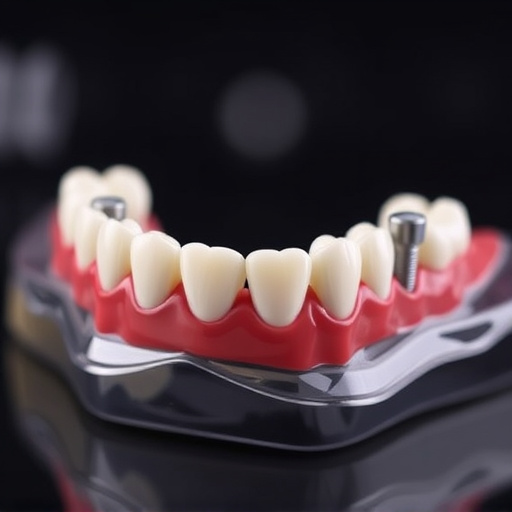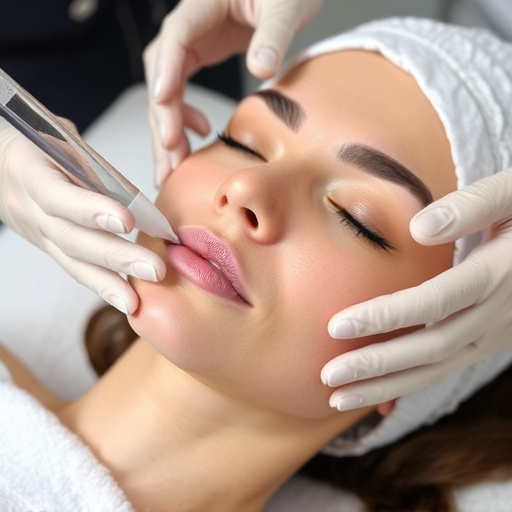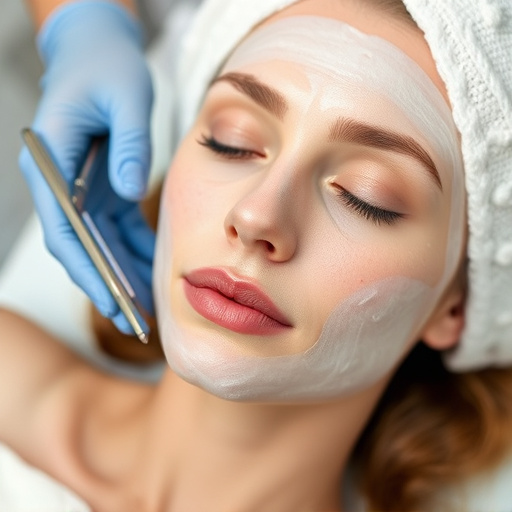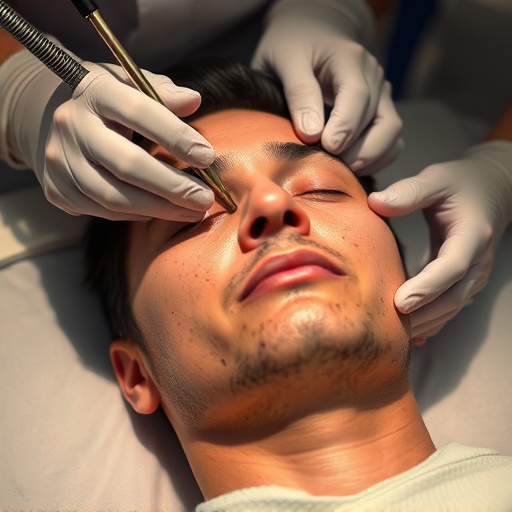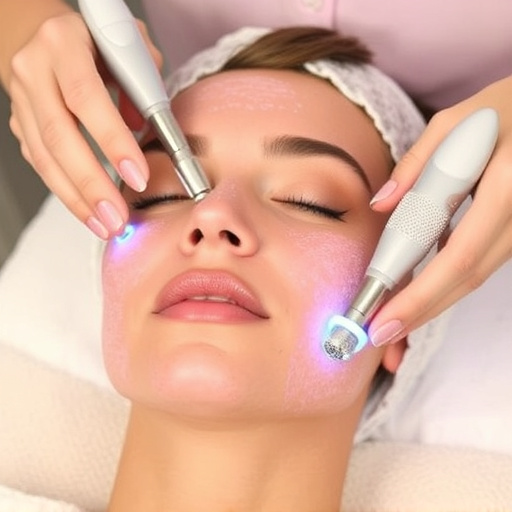Hyperpigmentation treatment for darker skin tones involves a tailored approach, combining safer alternatives like customized facials and targeted skincare with medical spa services such as chemical peels, microdermabrasion, and laser therapy. These methods address sun exposure, inflammation, and other causes to reduce dark patches and stimulate collagen production for even-toned, radiant skin.
Hyperpigmentation, a common skin concern, can particularly affect individuals with darker skin tones, leading to dark spots and an uneven complexion. Understanding this condition is the first step towards achieving a radiant, even tone. This article delves into the world of hyperpigmentation treatments tailored for deeper skin, exploring its causes, triggers, and a range of effective solutions. From chemical peels to targeted creams, discover how to restore your skin’s luminescence.
- Understanding Hyperpigmentation in Darker Skin Tones
- Common Causes and Triggers of Dark Spots
- Effective Treatment Options for Hyperpigmentation Reduction
Understanding Hyperpigmentation in Darker Skin Tones
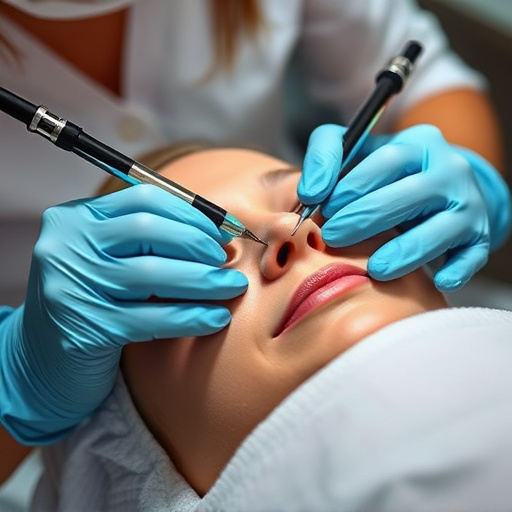
Hyperpigmentation is a common concern for many individuals with darker skin tones, where patches of skin appear darker than the surrounding areas due to an excess of melanin production. This condition can be triggered by various factors such as sun exposure, inflammation, or certain skin conditions like acne scars. In those with deeper skin colors, hyperpigmentation may present as flat dark spots known as post-inflammatory hyperpigmentation (PIH) or as raised, discolored areas in a patchy pattern.
Addressing hyperpigmentation requires a nuanced approach tailored to the unique needs of darker skin types. Traditional treatments often include medical spa services like chemical peels and laser therapy, which can be effective but must be carefully considered due to potential side effects and the risk of post-inflammatory lightening. Customized facials and targeted skincare routines with ingredients like vitamin C, retinoids, and hydroquinone (when prescribed by a dermatologist) offer gentler alternatives. Additionally, skin tightening treatments can aid in reducing the appearance of hyperpigmented areas by promoting collagen production, leading to smoother, more even-toned skin.
Common Causes and Triggers of Dark Spots
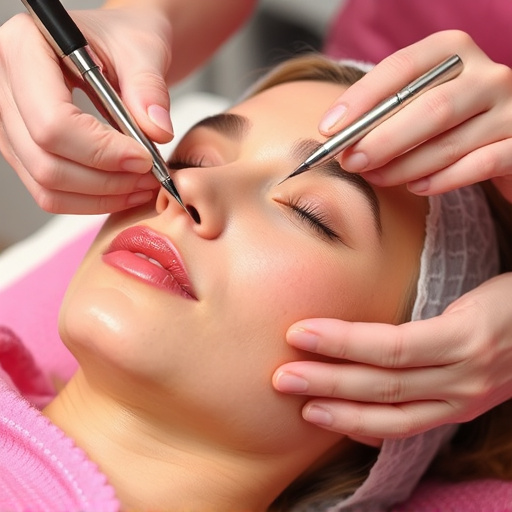
Dark spots on the skin can be a common concern for many individuals with darker skin tones. Several factors contribute to the development of hyperpigmentation, which is the technical term for dark spots. One of the primary causes is sun exposure; excessive ultraviolet radiation from the sun stimulates melanin production, leading to uneven skin tone and dark patches. This process is often accelerated by frequent tanning or using tanning beds, as these activities significantly increase UV exposure.
Other triggers include certain skin conditions like acne, eczema, or inflammation, which can cause damage to the skin’s surface and lead to hyperpigmentation. Additionally, some medications and cosmetic procedures might contribute to dark spot formation. For instance, post-inflammatory hyperpigmentation is a common result of acne scars, while chemical peels and certain topical treatments may also cause temporary discoloration. Understanding these causes is essential for effective management, which often involves targeted skincare routines or advanced treatments like microneedling therapy or skin rejuvenation procedures designed to brighten and even out the complexion.
Effective Treatment Options for Hyperpigmentation Reduction
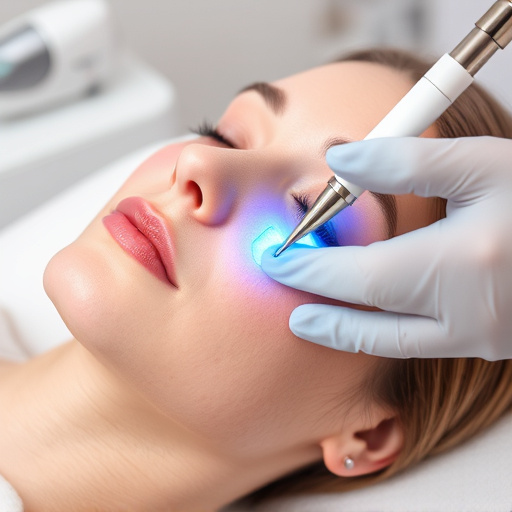
When it comes to effective hyperpigmentation treatment for darker skin tones, several options have proven successful. One of the most popular and widely accessible methods is chemical peels, which involve applying acidic solutions to the skin to remove the top layer, reducing the appearance of dark spots. These peels can range from mild to moderate in strength, catering to different levels of hyperpigmentation.
For those seeking more advanced treatments, medical spa services offer a variety of options tailored for skin rejuvenation. This includes targeted topical creams with ingredients like hydroquinone or retinoids, which inhibit melanin production and even out skin tone. Microdermabrasion and laser therapy are also effective in breaking up pigmented cells and stimulating collagen production, leading to a more uniform and radiant complexion.
Hyperpigmentation treatment for darker skin tones has evolved significantly, offering a range of effective options. By understanding the causes behind dark spots and choosing suitable treatments, individuals with deeper skin can achieve a more even complexion. Whether through topical creams, chemical peels, or targeted laser therapy, persistent efforts in hyperpigmentation treatment can lead to remarkable results, enhancing the natural radiance of darker skin tones.


